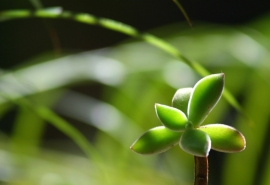
过去式的一般疑问句
常与then, yesterday, last night, many years ago等过去时间连用。
①be动词(was, were)的一般过去时,表示过去的状态。
I was short then. Now I am tall.
They were young then. Now they are old.
注意:a. 当主语是单数人称(I, he, she, it)时,用was.
b. 当主语是复数人称(we, you, they)时,用were.
c. 句式转换同be动词用法歌诀。
②情态动词(could)的一般过去时,表示主语以前具有的能力。
She could run fast when she was young.
She couldn’t read or write.
注意:a. 情态动词无人称或数的变化。
b. 情态动词后接动词原形。
c. 句式转换同can.
③实义动词的一般过去时,表示过去发生的动作。
I played football yesterday.
She got up too late yesterday.
Did you ride a horse? Yes, I did. / No, I didn’t. I went to a farm.
2.实义动词一般过去时的句式
①肯定句: 主语 + 动词过去式 + 其他。
I visited my grandparents yesterday.
②否定句: 主语 + didn’t + 动词原形 + 其他。
I didn’t visit my grandparents yesterday.
③一般疑问句: Did +主语 + 动词原形 + 其他?
Did you visit your grandparents yesterday?
④肯定回答: Yes, 主语 did.
Yes, I did.
⑤否定回答: No, 主语 didn’t.
No, I didn’t.
3.实义动词过去式的构成:
①加ed:
look—looked, listen—listened, play—played
②以e结尾的,加d:
like—liked, live—lived, phone—phoned, hope—hoped
③以辅音字母加y结尾的,把y变ied:
carry—carried, study—studied, worry—worried
④以一个元音字母和一个辅音字母结尾的重读闭音节,双写辅音字母,加ed: drop—dropped, stop—stopped, plan—planned
注意:snow—snowed, travel—traveled/travelled
⑤特殊变化:
do—did, have—had, eat—ate, buy—bought, gXGhuOHo—went, ride—rode, feed—fed,
take—took, see—saw, get—got, come—came, teach—taught, swim—swam, win
—won, feel—felt, draw—drew, read—read
注意:①动词的过去式,多用在一般过去时的肯定句中。
②问句中有did, 否定句中有didn’t,后接动词原形。
用一般过去式怎么造一般疑问句
八个时态的一般疑问句造句
一般过去时:He got up late yesterday.He didn't get up late yesterday.Did he get up late yesterday?
现在进行时:She is doing her homework now.She isn't doing her homework now.Is she doing her homewor now?
过去进行时:She was doing her homework this time yesterday.She wasn't doing her homework this time yesterday.Was she doing her homework this time yesterday?
一般将来时:I will go to school tomorrow.I won't go to school tomorrow.Will you go to school tomorrow?
过去将来时:I said I would go to school next Monday.I didn't say I would go to school next Monday.Did you say you would go to school tomorrow?
现在完成时:I have finished my homework.I haven't finished my homework yet.Have you finished your homework?
过去完成时:We had learnt 1600 words by t搜趣网he end of last term.We hadn't learnt 1600 words by the end of last term.Had you learnt 1600 words by the end 搜趣网of last term?
一般过去式,一般将来时的各种句式,一般疑问句,加答语
1.一般过去式句子的句式结构:
主语 + 动词过去式( be 动词的过去式/ 行为动词的过去式)
如:
She was a student two years ago.
她两年前是学生。
We were on the farm last week.
我们上周在农场。
We sang at the party yesterday.
我们昨天在派对上唱歌。
否定形式:
①was/were+not;
②在行为动词前加didn't,同时还原行为动词。
2.一般将来时句式结构:
肯定句:I/We shall/will go. You/He/She/They Will go.
否定句:I/We shall/will not go. You/He/She/They Will not go.
疑问句:Shall I/we go? Will you/he/she/they go?
简略回答:
肯定回答:Yes,主语 shall/will.
否定回答:No,主语 shall/will not.
特殊疑问句:一般将来时的特殊疑问句是将疑问词放在句首,后接一般疑问句(就主语提问时搜趣网,以疑问词who开头的疑问词除外)
例子:Why will you be here on sunday?
I will have a meeting on sunday.
(1)常见结构:
(a)will / shall 动词原形
这种方法一般单纯地表示将来某个时间将要发生的动作或存在的状态。will用于各种人称;shall只用于第一人称。
例如 : I will / shall go to visit him next week. 下周我将去拜访他。
What time shall we go there tomorrow? 明天我们几点去那儿?
(b)be going to 动词原形
be going to 相当于一个助动词(其中be有人称和数的变化),与它后面的动词原形一起构成谓语。用来表示近期将要发生的动作或存在的状态,以及计划、安排、打算要做的事。
例如: There is going to be a football match this afternoon.今天下午将有一场足球赛。
(2)常用结构
(a)用于"I expect, I'm sure, I think, I wonder 宾语从句"中。
Don't worry about the exam. I'm sure you'll pass.
不要担心这次考试,我确信你会通过的。
I wonder what will happen.
我不知道将会发生什么事。
I don't think the test will be very difficult.
我想这次测验不会太难。
(b)用于"祈使句 and陈术句"中。
Work hard and you will succeed.
如果你努力,就会成功的。
Go at once and you will see her.
马上去,你就会见到她了。
(c)与表示时间或条件的状语从句连用。
I'll let you know as soon as he arrives.
他一到我就通知你。
If you ask him, he will help you.
如果你请他,他会帮助你的。
3.一般疑问句句式结构:
(1)主语+be动词+表语结构
变一般疑问句,把be动词提前,即be动词+主语+表语结构?
例:Mr. White is a very good teacher.-->Is Mr. White a very good teacher?
(2)主语+动词+其他
当句子为一般现在时,在句首加do或does,并且把动词变为原形,即Do/Does+主语+动词原形+其他?
例:He loves playing football with his friends.--&gXGhuOHt;Does he love playing football with his friends?
句子为一般过去时,在句首加did,句子变成 Did+主语+动词+其他?
例:Tom's sister graduated from high school last year.-->Did Tom's sister graduate from high school last year?
(3)主语+情态动词+动词+其他
将情态动词提前,句子变成 情态动词+主语+动词原形+其他?
例:I can drive a car.-->Can you drive a car?
(4)主语+have/has+动词过去分词+其他
将have/has提前,句子变成have/has+主语+动词过去分词+其他
例:The students have done their homework.-->Have the students done their homework?
一般过去时的特殊疑问句例句5个 谢谢~
这种类型的句子构成是特殊疑问词 + 一般疑问句语序,如果有时间状语,注意选择对应过去时间的词,一般过去时的特殊疑问句例句5个如下。
whoes clothes were they?这些曾经是谁的衣服?
Where were you that night?那晚你在哪?
When did you go there?你什么时候去过那的?
What did he buy yesterday?他昨天都买什么了?
How did he manage to do that?他是怎么做到的?
英语学习应遵循以下五大原则。正如美国总统林肯所说:一个人必须依据语言、逻辑和"简单的常识"来决定问题和建立自己的行动计划。
在学习英语的过程中,按照常理去做,就可能成功。当然,成功与否还取决于"努力"。





